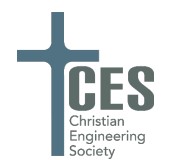Document Type
Paper
Abstract
In the era of global Artificial Intelligence (AI) integration across diverse fields, its influence has extended into the educational landscape of Colleges and Universities. Within Higher Education, where pedagogical approaches emphasize critical thinking, problem-solving, logical reasoning, solution design, and product development, AI and its associated tools play a pivotal role, significantly impacting the fundamental learning processes of students. These tools seamlessly infiltrate classrooms, laboratories, and assignments, functioning as valuable assistant tools designed to enhance overall learning experiences.
Discussions in various forums, task forces, faculty meetings, and literature have raised pertinent questions regarding the embrace or skepticism towards AI in education. While businesses, organizations, and even Christian Educational institutions have already incorporated different forms of AI tools, the decision to integrate them into the teaching-learning paradigm remains a topic of debate, with both advantages and disadvantages. This paper aims to explore perspectives on the effective incorporation of AI and its tools into our daily professional and personal lives. Survey results suggest that AI may be used profitably in various ways in Christian higher education, although there are certain points in the learning process where its use will not be helpful.
Creative Commons License

This work is licensed under a Creative Commons Attribution-Noncommercial-No Derivative Works 4.0 License.
Copyright
© 2024 Tim Gilmour. All rights reserved.
Faith meets Innovation: AI Tools Reshaping Christian Engineering Higher Education
In the era of global Artificial Intelligence (AI) integration across diverse fields, its influence has extended into the educational landscape of Colleges and Universities. Within Higher Education, where pedagogical approaches emphasize critical thinking, problem-solving, logical reasoning, solution design, and product development, AI and its associated tools play a pivotal role, significantly impacting the fundamental learning processes of students. These tools seamlessly infiltrate classrooms, laboratories, and assignments, functioning as valuable assistant tools designed to enhance overall learning experiences.
Discussions in various forums, task forces, faculty meetings, and literature have raised pertinent questions regarding the embrace or skepticism towards AI in education. While businesses, organizations, and even Christian Educational institutions have already incorporated different forms of AI tools, the decision to integrate them into the teaching-learning paradigm remains a topic of debate, with both advantages and disadvantages. This paper aims to explore perspectives on the effective incorporation of AI and its tools into our daily professional and personal lives. Survey results suggest that AI may be used profitably in various ways in Christian higher education, although there are certain points in the learning process where its use will not be helpful.

